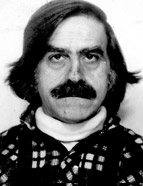

The principle of democratic centralism upon which he had based his belief in the democratic nature of real socialism regimes had been made forcibly clear to him by comparison with the French democracy as an endocentric fallacy which had shattered the illusion of shared decision-making powers with the joint community of activists and citizens. Within this framework, and in the field of historical-literary analysis, political and ideological dissidence steered him away from his erstwhile sociologism. Likewise, his party activism ended in 1962 when he formally severed all ties with the Communist Party, following his second visit to the USSR, on the pretext of a censorial episode in Moscow involving A. Cunhal, the party secretary general, under Soviet orders. By distancing himself from that political ideology after almost twenty years of essentially ideological activism, he became embittered by the isolation and ostracism imposed by parties of the same ideological spectrum on those who dared to think without observing official directives .
In France, as a researcher he had initially been connected to the Collège de France (1960), moving the following year to the Centre National de la Recherche Scientifique (C. N. R. S). In 1966, as a result of theoretical contentions within the circle of renowned Hispanist Marcel Bataillon’s protégées, Saraiva lost both his trust in and connection to the institution. He survived a year without support, focusing on studying and writing, only to experience yet another traumatising event as head of the Liga Portuguesa de Ensino [Portuguese League of Education], one that re-weakened his already fragile and hypersensitive psychological makeup. The Liga Portuguesa de Ensino was a cultural association devoted mainly to the civic education of Portuguese immigrants in the Paris area, and a breeding ground for immature young men divided by distinct and often conflicting left-wing ideologies. From then onwards, Saraiva was determined to leave France, but he was reluctant to accept the several invitations from universities in Brazil because of the distance from his home country imposed by the Atlantic, despite his continued vocation to teach.
He continued his research in the École Pratique des Hautes Études (E. P. H. E - 5e section), the embryo of the future École des Hautes Études en Science Sociales (E. H. S. S.), under Fernand Braudel, with whom he shared mutual admiration. His research was cut short in 1969, presumably by the hand of Israel S. Révah, who had already succeeded in having Saraiva removed from the C.N.R.S. and who had managed to poison the E.P.H.E against him.
